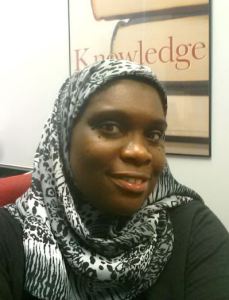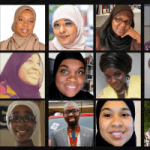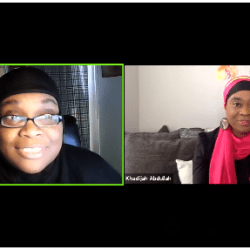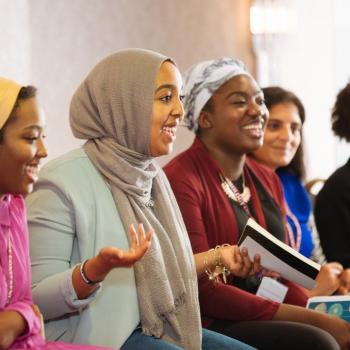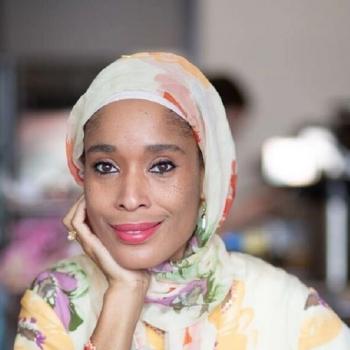Review by Layla Abdullah-Poulos
BRITISH MUSLIMS
By Sadek Hamid
$7.41, pp. 252, Paperback & Kindle
The tendency for majority societies to overgeneralize and ignore the multifaceted nature of the Muslim minority cultures within them contributes to prevailing stereotypes that feed discrimination and hate. Aversions to appreciating the many distinct Muslim cultural identities require written works that resist both external and internalized antipathy.
In British Muslims: New Directions in Islamic Thought, Creativity and Activism, Sadek Hamid present some of the historical and emerging dynamics that make up Muslim culture in the UK.
The authors provide readers with a chance to explore the political, academic and cultural mores of the layered British Muslim cultural identities.
There are numerous books circulating globally that advance homogenized conceptions about being Muslim and the cultural productions from what is so frequently very different backgrounds—faith being the only common denominator. Many authors (Muslim and non-Muslim) use the term “Muslim” to appeal the pervasive ideas that:
- all Muslims are the same, and
- they have the expertise and cultural in to explain everything in a few pages. Lewis and Sadek attempt to avoid both, not an easy but necessary endeavor.
Explicitly titling their book with the defined national↔cultural identity “British” is a step in the right direction. Adding focus is something authors should ideally do to avoid creating and fostering the production of a Muslim phenotype used to simultaneously other Muslims outside of and erase those inside of the culture.
“British Muslim” is still very broad and more focus will be necessary. For example, the book scratches the surface of Black British Muslim culture. There is much more to explore, which I hope Lewis and Hamid will do in subsequent works and include Black British Muslims scholarship or at least add more specificity. Maybe “Desi British Muslims” would’ve been a more suitable title, since that seems to be the group mainly featured.
Black Muslim scholarship includes cultural qualifiers all of the time. It is best for Muslims (Desi, Arab, etc.) writing about American and British Muslim cultural experiences to add them as well.
Using a distant—here, look at this—tone, the co-authors do their best to keep their individual perspectives from “tainting” the research. Of course, that is not totally possible, but they come close enough so that their voices are not overwhelming. They layout things for readers without being too stiff.
I would have liked a little more anecdotal content from each author at the beginning, verifying their purpose for me as a reader and allowing me to let my guard down earlier. As an African American Muslim woman exposed to a barrage of works infused with subtle anti-Muslim sentiments (Islamophobia), Orientalism, anti-Blackness/anti-African American, and sexist rhetoric, I would’ve like to be comforted by the authors that their work was not one of those hegemonic undertakings.
Given the current cultural climate in the US and UK, I think authors should do a little heavy lifting to reassure readers, especially if they seek to appeal to a large readership subject to systemic racism, sexism, and xenophobia.
I found the inclusion of American Muslim influence interesting. Lewis and Hamid draw some fascinating cultural parallels to show the similarities and divergences between US and UK Muslim cultures, which is important. With the constant “Islam vs The West” propaganda refrain still a part of dialogues about Muslims, British Muslims is an example of subverting alienation between being Muslim and Western and outlines distinctions of how members of both cultures take ownership of and navigate through them in the UK.
My work makes it necessary for me to point out one oversight. While mentioning the scholarship of many of their cited authors, they referred to Habeeb Akande as an “author,” ignoring his global scholarship in Islamic history and erotology. I am aware that this frequently happens to scholars who do not have certain letters after their names. I don’t want to assume the authors’ intentions, but I think we need to consistently appreciate scholarship where it is. Akande has produced some ground-breaking work, which should be reflected when mentioning him and other similar scholars.
Lewis and Hamid created a substantial work in British Muslims. The book is a necessary addition to the libraries of Muslims seeking to learn about or enhance their knowledge of complex Muslim cultural identities. It complements other works like Illuminating the Darkness, American Islamophobia, Being Muslim, Centering Black Narrative, Islam and the Blackamerican, and Muslim Cool. I highly recommend it.


